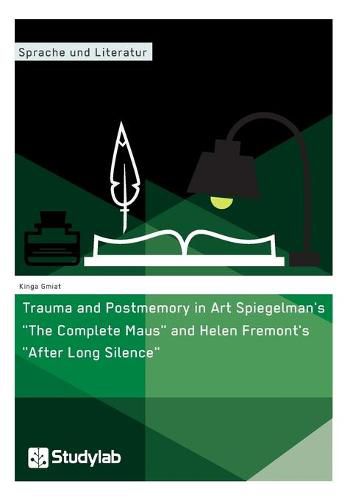Trauma and Postmemory in Art Spiegelman's The Complete Maus and Helen Fremont's After Long Silence
Kinga Gmiat

Trauma and Postmemory in Art Spiegelman’s The Complete Maus and Helen Fremont’s After Long Silence
Kinga Gmiat
This title is printed to order. This book may have been self-published. If so, we cannot guarantee the quality of the content. In the main most books will have gone through the editing process however some may not. We therefore suggest that you be aware of this before ordering this book. If in doubt check either the author or publisher’s details as we are unable to accept any returns unless they are faulty. Please contact us if you have any questions.
The Holocaust represents an immense historical as well as a cultural trauma. The following thesis talks about the trauma symptoms and the behavior of Holocaust victims, including a broad selection of scholarly research on the Holocaust aftermath. Afterwards, features of postgeneration art will be presented in detail, as second generation literature and art mirrors the depression and horrid state of the mind of survivors. By analyzing Art Spiegelmann’s The Complete Maus and Helen Fremont’s After Long Silence this thesis aims at portraying the degree of traumatization as well as the extent to which the second generation is affected by the traumatic experiences of the parents lives. Contents: - Symptoms of psychological trauma and behavior, - Recovery and the Necessity of a Story, - Direct and Indirect Trauma, - The Concept of Postmemory: Familial Transmission of Trauma, - The Silence of the First Generation.
This item is not currently in-stock. It can be ordered online and is expected to ship in 7-14 days
Our stock data is updated periodically, and availability may change throughout the day for in-demand items. Please call the relevant shop for the most current stock information. Prices are subject to change without notice.
Sign in or become a Readings Member to add this title to a wishlist.


